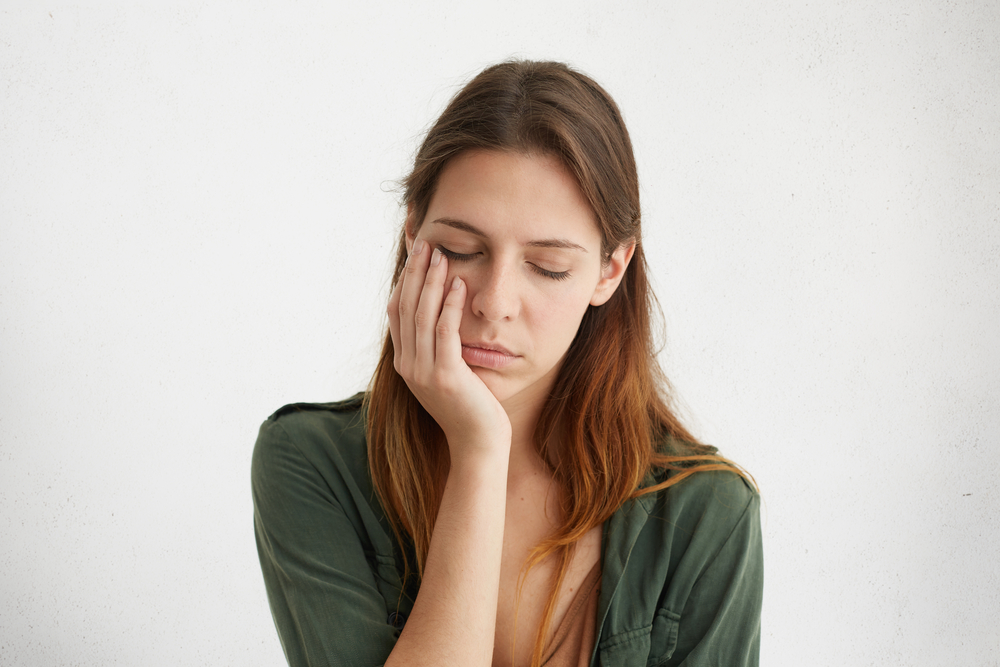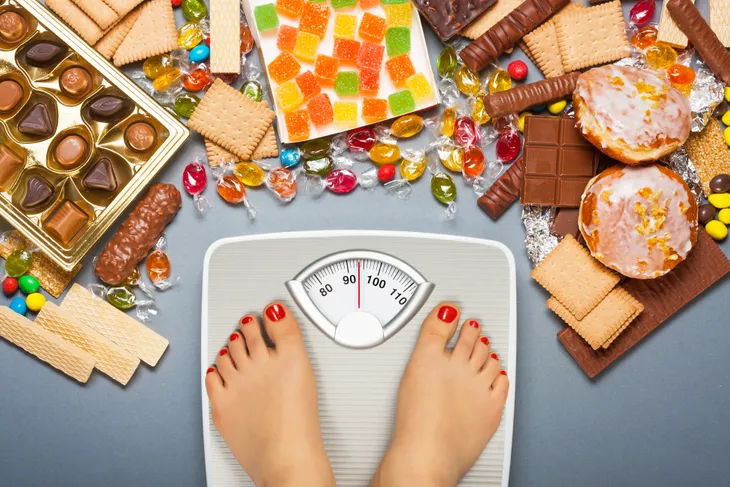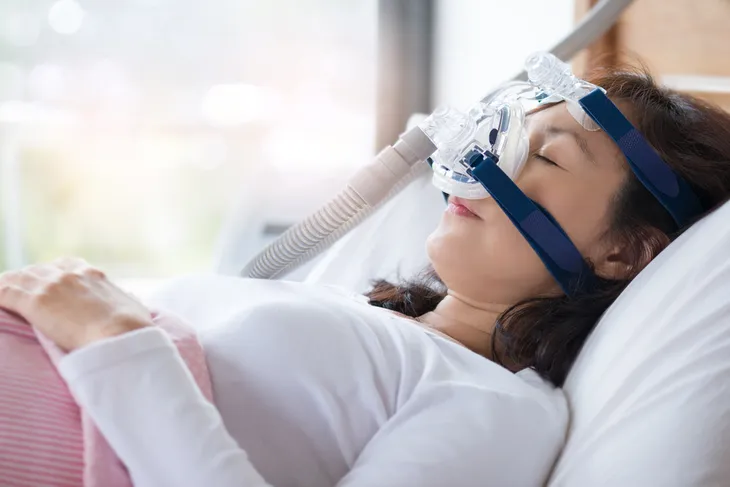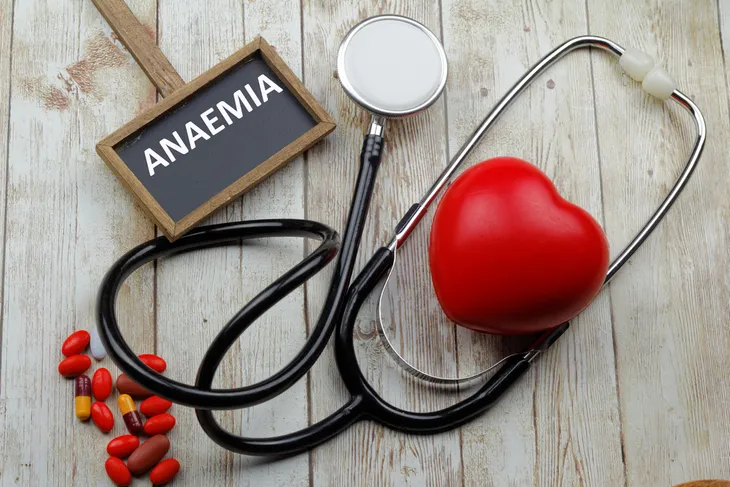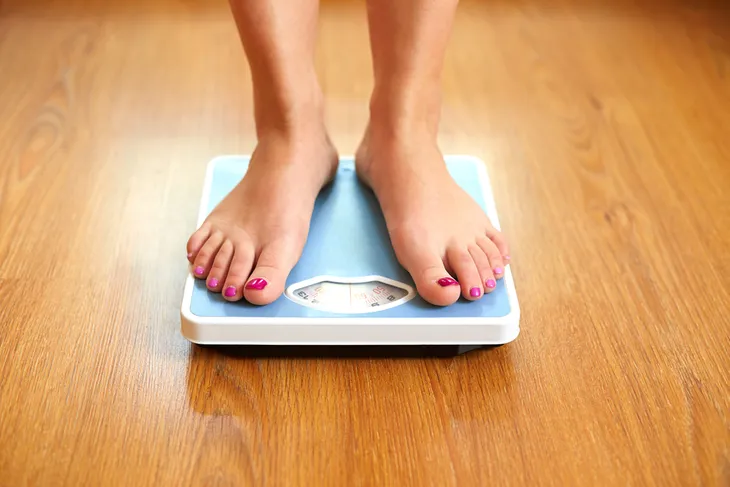- Feeling fatigued can seriously disrupt your day and reduce your productivity.
- It’s more common than you may think! Both men and women report feeling sleepy about 3-days per week.
- You may have no energy due to a lack of sleep, a poor diet, lack of exercise, nutrient deficiencies or it may be caused by a serious medical condition.
Are you feeling tired and drained of all your energy? You’re not alone. The Sleep Foundation says both men and women report feeling sleepy about 3-days per week. Even worse, when you have no energy it can make daily tasks hard to handle too.
Tiredness can be caused by a variety of factors such as lack of sleep or a busy and demanding schedule. However, in some cases, you can still feel tired even after getting adequate sleep. If that’s the case, here are 12 possible reasons why you have no energy.
Electronics Use Before Bed
Let us put it this way, if you’re wired…well, you’ll stay wired for a while. It’s true, there is a growing body of evidence that using electronics before bedtime, such as smartphones, laptops, computers, watching television, or playing video games turns up the fight-or-flight response, keeping you in a state of stress.
You may be unable to sleep due to increased blood pressure and heart rate hours after using electronics. Many devices also emit blue light which can affect your biological clock and in turn disrupt your sleep. So unplug at least 3-hours prior to sleeping!
Poor Diet
Cutting calories may help you shed unwanted pounds, but inadequate nourishment may cause severe energy drain. The same goes for a diet full of refined sugars and carbohydrates—it can leave you beat! This is because simple sugar “is digested quickly by the body, leading to a dip in blood sugar levels that leaves you feeling fatigued,” explains the Cleveland Clinic.
Instead, consume a well-balanced diet of fresh fruits and veggies, lean proteins, and whole grains to keep you fueled throughout the day. If you think you might have a nutrient deficiency, contact your doctor to find out.
Depression
Although common, depression is a serious medical illness. It can affect how you feel, think, and act. It could also be the reason why you have no energy. The good news is, depression is a treatable illness.
If you suspect you may be suffering from depression, it’s important to reach out for help. Contact your doctor for a diagnosis and to discuss a treatment plan. Treatment may include medication, psychotherapy (talk therapy), or a combination of both. Electroconvulsive therapy is also an option but it’s typically reserved for patients with severe major depression who haven’t responded to other forms of treatment, explains the American Psychiatry Association.
Sleep Apnea
Even though you think you’re sleeping soundly through the night, you might not be. You may be suffering from sleep apnea, a condition that briefly stops your breathing multiple times each night, disrupting your deep sleep even though you’re not aware of it.
Daytime fatigue is one of the most common complications of sleep apnea but it can also cause other health problems like high blood pressure, diabetes, and even heart attacks. If you think you might be suffering from sleep apnea, book an appointment with your doctor. They may refer you to a sleep clinic for a proper diagnosis and then help you come up with a treatment plan.
Thyroid Issues
Hypothyroidism (also known as an underactive thyroid), is a condition that develops when your thyroid gland doesn’t produce enough hormones. In the early stages, you may not notice any symptoms, however, over time you may develop a variety of signs such as weight gain, muscle weakness, depression, and most commonly, fatigue.
Those with hypothyroidism have sluggish metabolisms, which leave them drained of energy and prone to weight gain. If you suspect a thyroid issue, ask your doctor to check your hormone levels.
You May Be Anemic
Anemia is a surefire way to feel fatigued. It also happens to be twice as prevalent in females as males. In short, anemia is a condition “in which you lack enough healthy red blood cells to carry adequate oxygen to your body’s tissues,” explains the Mayo Clinic. And you require red blood cells to carry oxygen and energy to your tissues and organs.
First, it’s important to get a proper diagnosis by your doctor which can be done through a blood test. If you are anemic, your doctor may recommend incorporating iron-rich foods into your diet, such as shellfish, beans, whole grain cereals, and beef. In some cases, supplements may be necessary.
Diabetes
In the early stages of the condition, many people suffer from diabetes without even knowing it. However, eventually, you’ll begin to develop more noticeable symptoms. Some common symptoms of type 2 diabetes to be on the lookout for are increased urination, increased appetite, unquenchable thirst, slow healing cuts, and of course, unexplained fatigue.
Fatigue can develop from high blood sugar levels as well as other complications from the condition, explains Medical News Today. If you think your low energy could be a result of diabetes, make sure you contact your doctor. The good news is the disease can be managed with medication and lifestyle adjustments.
Too Much Caffeine
Caffeine in coffee, caffeinated teas, soda, energy drinks, and chocolate, can provide the kick you need when you’re really tired. However, you can overdo it by consuming too much caffeine, resulting in accelerated heart rate, blood pressure, and ultimately, exhaustion.
Furthermore, drinking too much caffeine may lead to sleeplessness and nighttime worrying. It may also cause you to wake up multiple times throughout the night, decreasing your total sleep time, and in turn, causing daytime sleepiness. If you think you may be drinking too much caffeine, it might be time to cut back and see if your energy improves.
Dehydration
It’s no secret that water is important. It helps lubricate your joints, helps your kidneys function efficiently, protects your organs and tissues, and so much more. It can also play a role in your energy levels.
A very simple and quick fix if you are feeling fatigued is to drink water. Dehydration is a common energy-zapper if you aren’t getting adequate liquids. One telltale sign of dehydration is your urine. If it’s dark yellow in color, you’re not well hydrated and you need to drink more water!
Too Much Stress
Everyone experiences stress from time to time. But stress might be the culprit to your low energy levels. Chronic stress may even lead to stress-related exhaustion disorder (ED), explains Healthline.
The source also says chronic stress may alter your brain in a way that may lead to chronic inflammation. In turn, this may lead to symptoms like tiredness. Some stress is unavoidable, but it’s important to manage the stress that is within your control. Some great ways to relieve stress are to decompress with breathing exercises, meditation, yoga, or gentle stretching, as well as going for a walk or taking a bath. Find what relaxes you, and utilize it when you’re feeling overly stressed.
Obesity
Maintaining a healthy body weight is important for your health for many reasons from decreasing your risk for certain diseases like heart disease and diabetes to reducing your risk of cancer. Not only is do you have a greater chance of developing these illnesses when you’re obese, but you may also be at risk for chronic fatigue, says Healthline.
Maintaining a healthy body weight may also encourage better sleep, as obese individuals have a higher risk of sleep apnea. And when you get better sleep, you may be able to help prevent weight gain. Talk to your doctor to find out what a healthy weight is for you, as well as the steps you can take to achieve your weight loss goals.
A Sedentary Lifestyle
Be honest, do you spend most of your day sitting? It’s easy to go from sitting at a desk all day to moving to the couch to relax and watch your favorite shows. Unfortunately, sitting for prolonged periods of time is harmful to your health. More importantly here, being sedentary can greatly decrease your energy too.
If you think your fatigue may be caused by sitting for long periods of time, an easy way to fix this is to get up and move around at least once an hour. This is especially important if you have a desk job. Standing up and moving around for even just a few minutes can encourage blood circulation through your body and increase oxygen in your blood. As a result, the added oxygen will be sent to your brain which can increase alertness.
In addition to standing up throughout the day, it’s also very important to get adequate exercise. The Centers for Disease Control and Prevention (CDC) recommends at least 150-minutes of moderate-intensity activity per week, which can be broken up into 30-minute workouts five times per week.
